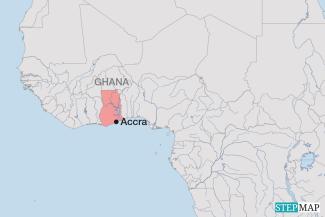Public debt
Ghana is seeking financial bailout

The application has rattled feathers as critics blame the government for overdependence on external funding. This would be the second time in the last three years that the country is reaching out to the IMF for help. Understandably so however, several issues such as the Covid-19 pandemic and Russia’s war of aggression in Ukraine have made things worse.
Moreover, Ghana has in the past sought for funding from the IMF. Since its independence, the country has received IMF help 17 times. This time however, the bailout is anticipated to come with more strict conditions, including fiscal austerity measures.
The government is resolute in its belief that the $ 3 billion IMF funding is necessary to restore macroeconomic stability and attract foreign investment. Some economists and sections of the public however disagree with this.
Godfred Alufar Bokpi, professor of economics at the University of Ghana Business School, argues that the loan would place an excessive tax burden on the population. He suggests that alternative solutions could be explored such as “alternative sources of funding and implementing economic reforms like increasing domestic revenue and reducing government spending on non-priority areas”.
Godwin Edudzi Tamekloe, a private legal practitioner and member of the National Democratic Congress, says: “Even if Ghana receives approval from the IMF, the economic woes of the country will persist since the government has refused to accept its reckless borrowing and expenditure as the cause of the crisis.”
Some traders also expressed their frustration about IMF assistance and said that the conditions of the bailout, including austerity measures and cuts to social spending, would negatively impact the poor. “IMF cannot salvage Ghana’s economy from its current poor state,” says Akua Dede, a trader at the Accra central business centre. “We need to turn raw materials into finished products for consumption and export and industrialise the country,” he added.
The government recently completed a voluntary domestic debt-exchange programme involving bondholders and is now liaising with international creditors to restructure Ghana’s external debt. This too has received stiff resistance, as bondholders went onto the streets of Accra, to protest the decision.
Additionally, the parliament passed three new major tax bills to strengthen the sustainable generation of domestic revenue. Business groups such as the Association of Ghana Industries, the Ghana National Chamber of Commerce and Industry and the Ghana Union of Traders Association reject the new taxes, saying that they would lead to job cuts, shut down production lines and surge prices for goods and services.
Dasmani Laary is a journalist in Ghana.
laarygna@gmail.com













